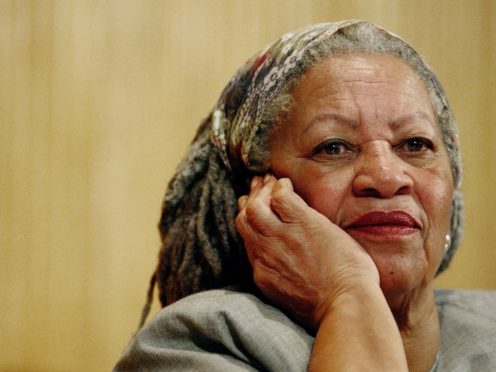Nobel laureate Toni Morrison, a giant of modern American literature who sought to dramatise the pursuit of freedom within the boundaries of race, has died at the age of 88.
Her publisher Alfred A Knopf announced that Morrison had died on Monday night at Montefiore Medical Centre in New York.
Former US president Barack Obama – who awarded Morrison the Presidential Medal of Freedom in 2012 – paid tribute to the author, writing on his Facebook page: “Her writing was not just beautiful but meaningful — a challenge to our conscience and a call to greater empathy.
“She was as good a storyteller, as captivating, in person as she was on the page.”
Toni Morrison was a national treasure, as good a storyteller, as captivating, in person as she was on the page. Her writing was a beautiful, meaningful challenge to our conscience and our moral imagination. What a gift to breathe the same air as her, if only for a while. pic.twitter.com/JG7Jgu4p9t
— Barack Obama (@BarackObama) August 6, 2019
Beyonce paid tribute to Morrison on her website with a picture of the author on her homepage alongside one of her quotes: “If you surrender to the air, you can ride it.”
“Rest in paradise,” she added.
Morrison’s family issued a statement through Knopf, saying she had died after a brief illness.
They said: “Toni Morrison passed away peacefully last night surrounded by family and friends.
“She was an extremely devoted mother, grandmother, and aunt who revelled in being with her family and friends. The consummate writer who treasured the written word, whether her own, her students’ or others’, she read voraciously and was most at home when writing.”
Singer Bette Midler tweeted: “#ToniMorrison has died. Just when we most need to hear her voice, she is gone. Thank you for the insights, the stories, and the poetry of your thought that have enriched us all these many years. Lay your burden down.”
Morrison was nearly 40 when her first novel, The Bluest Eye, was published in 1969.
#ToniMorrison has died. Just when we most need to hear her voice, she is gone. Thank you for the insights, the stories, and the poetry of your thought that have enriched us all these many years. Lay your burden down.
— Bette Midler (@BetteMidler) August 6, 2019
By her early 60s, after just six novels, she had become the first black woman to receive the Nobel literature prize, praised in 1993 by the Swedish academy for her “visionary force” and for delving into “language itself, a language she wants to liberate” from categories of black and white.
Morrison helped educate her country and the world about the private lives of the unknown and unwanted. In her novels, history – particularly black history – was a hidden trove of poetry, tragedy and good old gossip, whether in small-town Ohio in Sula or big-city Harlem in Jazz.

She regarded race as a social construct, and through language founded the better world her characters suffered to attain, weaving in everything from African literature and slave folklore to the Bible and Gabriel Garcia Marquez.
“Narrative has never been merely entertainment for me,” she said in her Nobel acceptance lecture. “It is, I believe, one of the principal ways in which we absorb knowledge.”
She won the 1988 Pulitzer Prize for perhaps her best-known novel, Beloved, in which a mother makes a tragic choice to save her baby girl from slavery.
Her admirers ranged from college students and housewives to Mr Obama, as well as fellow ex-US president Bill Clinton, whom the author called “our first black president”. Another celebrity admirer was Oprah Winfrey, who helped expand Morrison’s readership.
Morrison shared those high opinions, repeatedly labelling one of her novels, Love, as “perfect”, and rejecting the idea that artistic achievement called for quiet modesty.
